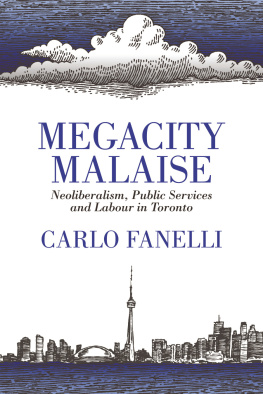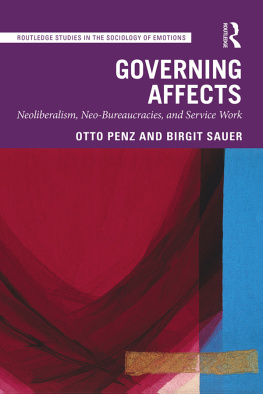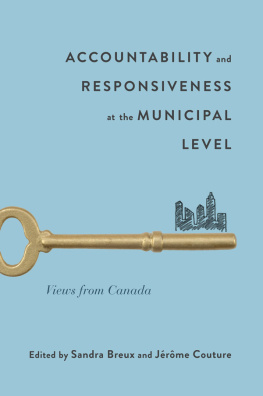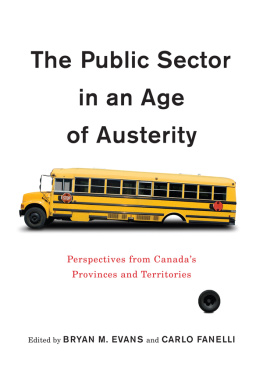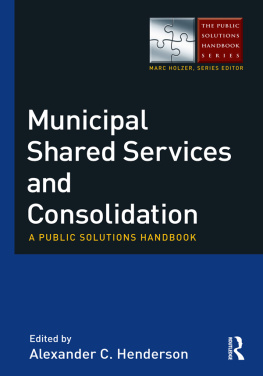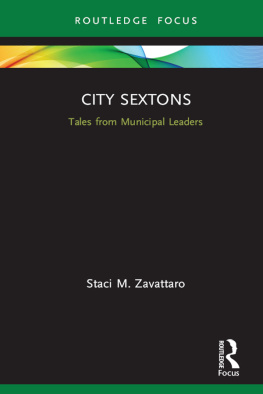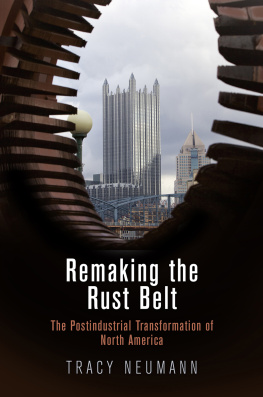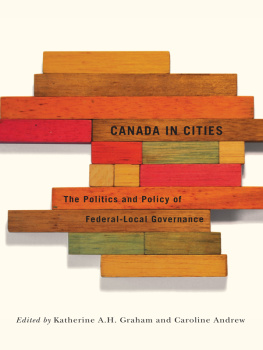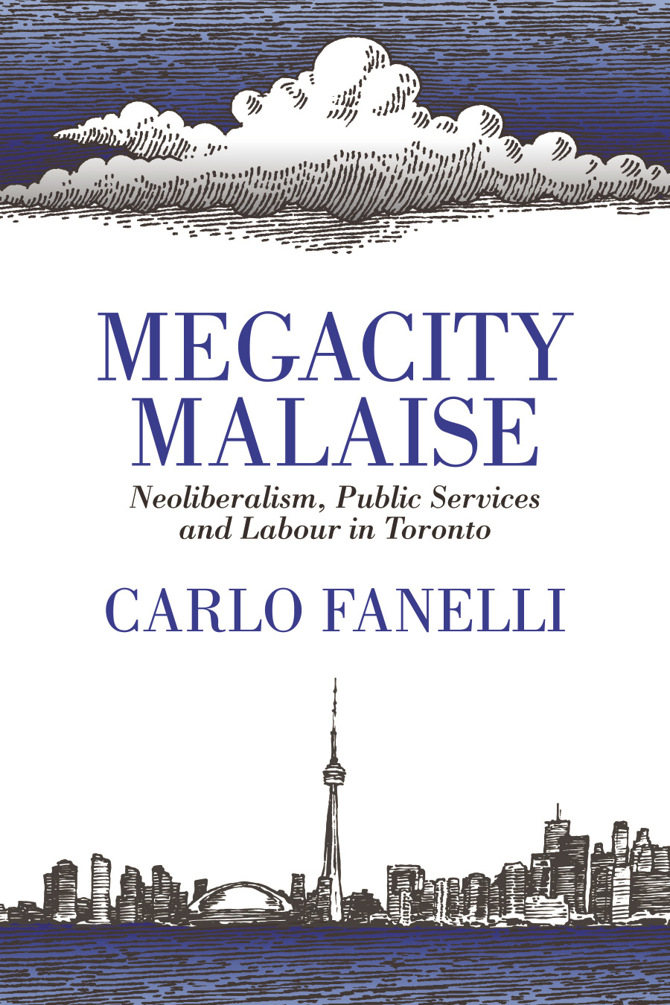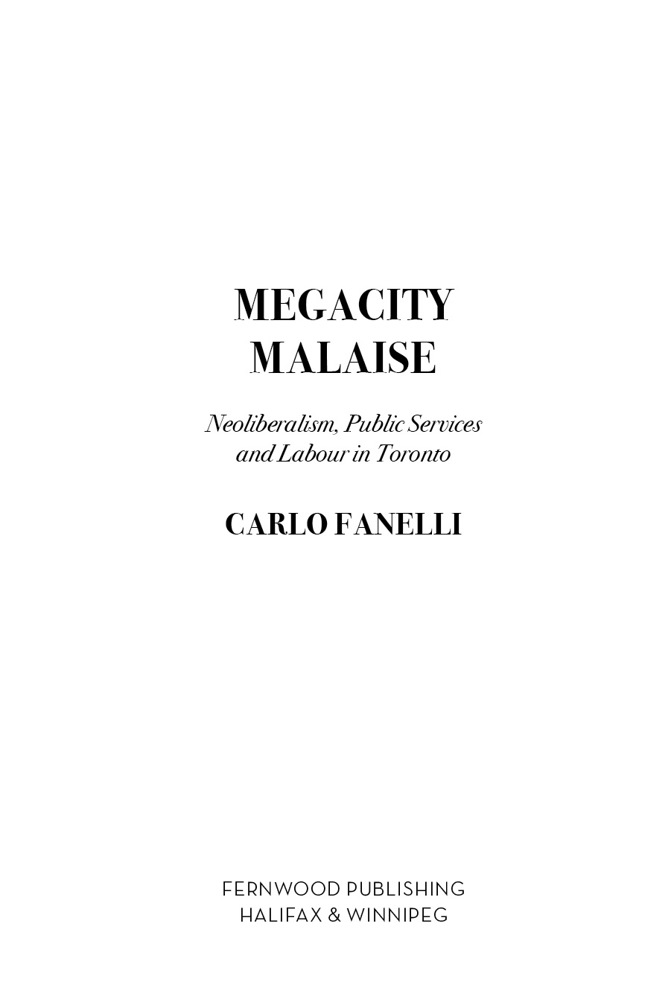Copyright 2016 Carlo Fanelli
All rights reserved. No part of this book may be reproduced or transmitted in any form by any means without permission in writing from the publisher, except by a reviewer, who may quote brief passages in a review.
Editing: Jessica Antony
Cover design: John van der Woude
Printed and bound in Canada
Published by Fernwood Publishing
32 Oceanvista Lane, Black Point, Nova Scotia, B0J 1B0
and 748 Broadway Avenue, Winnipeg, Manitoba, R3G 0X3
www.fernwoodpublishing.ca
Fernwood Publishing Company Limited gratefully acknowledges the financial support of the Government of Canada through the Canada Book Fund, the Manitoba Department of Culture, Heritage and Tourism under the Manitoba Publishers Marketing Assistance Program and the Province of Manitoba, through the Book Publishing Tax Credit, for our publishing program. We are pleased to work in partnership with the Province of Nova Scotia to develop and promote our creative industries for the benefit of all Nova Scotians. We acknowledge the support of the Canada Council for the Arts, which last year invested $153 million to bring the arts to Canadians throughout the country.
Library and Archives Canada Cataloguing in Publication
Fanelli, Carlo, 1984-, author
Megacity malaise: neoliberalism, public services and labour
in Toronto / Carlo Fanelli.
Includes bibliographical references and index.
Issued in print and electronic formats.
ISBN 978-1-55266-814-6 (paperback).ISBN 978-1-55266-838-2 (epub).
ISBN 978-1-55266-839-9 (kindle)
1. Municipal governmentOntarioToronto. 2. Municipal services
OntarioTorontoManagement. 3. Industrial relationsOntarioToronto.
4. NeoliberalismOntarioToronto. I. Title.
JS1789.3.A2F35 2016 320.8509713541 C2015-908388-5
C2015-908389-3
Contents
Acknowledgements
This book would not have been possible without the support of many hands. I would like to thank Mark Thomas, Justin Paulson, Julia Barnett and Bryan Evans for sharing their keen insights, knowledge and support. I also want to thank Greg Albo and Sam Gindin for urging me to put pen to paper. I was a civic worker through the 2009 strike, and their visits to the picket lines and support rallies were a source of inspiration and encouragement. Greg and Sam carefully read numerous versions of articles and were always willing to share their encyclopedic breadth of information and experience. This book is dedicated to them. I also want to thank Wayne Antony for his immediate support of this project and sharp editorial eye. It is all the better for it. Many thanks to the friends, family and colleagues who offered their thoughts and advice on this project over the years. While too numerous to name, they all left a lasting influence on me and the ideas found here. Insightful comments by two anonymous reviewers significantly improved the arguments contained here. Needless to say, all of the opinions and views expressed here are the sole responsibility of the author. Finally, a special thank you to my parents and Samantha Wilson for their endless support and enthusiasm throughout.
Some of these chapters got their start as articles. This includes: Neoliberal Urbanism and the Assault Against Public Services and Workers in Toronto, 20062011, published in Articulo: Journal of Urban Research; Toronto Civic Workers Bargaining Without a Base: The Significance of 2012, in Studies in Social Justice ; and Under Pressure: How Public Policy is Constraining Ontario Municipalities published by the Canadian Centre for Policy Alternatives Ontario. They have all been thoroughly revised, re-written and expanded in the chapters that follow. To my former colleagues at the City of Toronto and in Canadian Union of Public Employees Locals 79 and 416: It is often said that history repeats itself, first as tragedy, then as farce. This book was written in the spirit of workers making their own history.
Chapter One
The Anatomy of a Revenue Crisis
This is a book about how public services and public sector workers have come under attack in an officially declared era of scarcity and fiscal retrenchment. As headquarters to the largest financial institutions and banks, as the largest municipal government and as the nations largest employment centre, Toronto is, in a sense, at the centre of urban neoliberalism in Canada. Canadian Union of Public Employees ( cupe ) Local 79 is also the largest municipal union in the country. Traditionally white- and pink-collar inside workers, Local 79 has a membership of 18,000, although various contingent, seasonal and part-time workers push its membership close to 24,000. Approximately 70 percent of Local 79s members are women, with some 50 percent representative of historically racialized groups. Its sister union, Local 416, is primarily made up of blue-collar outside workers and has approximately 6,200 members. Together, they work in areas of public health and education, child and elder care, parks, recreation, water treatment, Emergency Medical Services, as well as housing and court services, road maintenance, by-law and safety enforcement, building inspection, animal rescue, waste collection and social services administration, just to name a few. Considering that Toronto has both the largest municipal government and largest municipal union in Canada, changes to Torontos public administration, services provisioning and labour-management relations may reveal trends in the broader public sector, as well as illustrate the forms of resistance and strengths as well as limitations of existing union capacities.
As a former municipal worker with the City of Toronto for nearly a decade, I was a member of cupe Local 79 during the ten-day work stoppage in 2000, the sixteen-day work stoppage in 2002 and a picket captain through the thirty-nine-day strike in 2009. I held many positions during my employment with Toronto Parks, Forestry and Recreation, including skating coordinator, pre-school and summer camp counselor and coordinator, seniors programmer, cooking instructor, fitness trainer, homework tutor, after-school caregiver and youth leadership development coordinator, as well as outreach and advocacy partner with community-based organizations. In this regard I have firsthand experience with an important segment of the services the City provides, not only as a worker and trade unionist, but also as a member of the community.
My connection to the City of Toronto is also a very personal one. I benefitted greatly from my local community centres in the borough of Rexdale bedrock of Ford Nation (a reference to the predominantly suburban supporters of conservative Rob Ford). Rexdale is also one of the citys priority neighbourhoods characterized by low incomes and high levels of workplace precarity, migration and health insecurity. Although concrete memories are now few and far between, my first experience as a user of the citys services came at the tender age of four when I was enrolled in a daycare program at Thistletown Community Centre. Over the years I would go on to spend many evenings and whole summers participating in swimming lessons at the Elms Community Centre, hockey at Albion Arena and Sunnydale Acres Rink, basketball at Kingsview Village Community Centre, soccer at Summerlea Park, bocce with my grandfather at Gord and Irene Risk Community Centre, as well as woodworking, cooking and arts and crafts programming at Thistletown, to name just a few examples. Through these experiences a sense of friendship and community developed as I went to school with many of the same participants, visited the mom and pop shops of the neighbourhood, occasionally got to meet city councillors and school board trustees, and went to community events and festivals. By the age of fourteen I had become a volunteer and by sixteen was working in many of the community centres mentioned above. Thanks initially to the availability of public transit and later to parents who were brave enough to let their son borrow their vehicle, I was even able to work at other community centres throughout the city such as Islington and Glen Long Community Centres, Edenbridge Seniors Centre and many other seasonal locations. With all this in mind, I have a deep sense of gratitude for the public services and employment I was able to rely on, as well as profound concern as many of the opportunities that I benefitted from are steadily being eroded for others. Unaware to me at the time, I was being exposed to just a small fraction of the services cities provide: everything from pre-school to seniors programming, language instruction, healthcare support services, public transit, parks and road maintenance, waste disposal, police, fire and emergency medical services, urban planning, environmental initiatives and so on. This book, then, is as much a recognition of the community relationships and city services that impacted me as it is a scholarly contribution exploring the public institutions and governance arrangements, trade union rights and freedoms and public services that are threatened by elite-driven austerity measures and government policies that imperil urban life.

